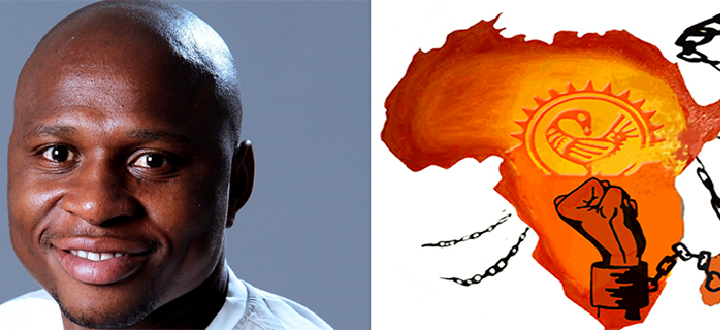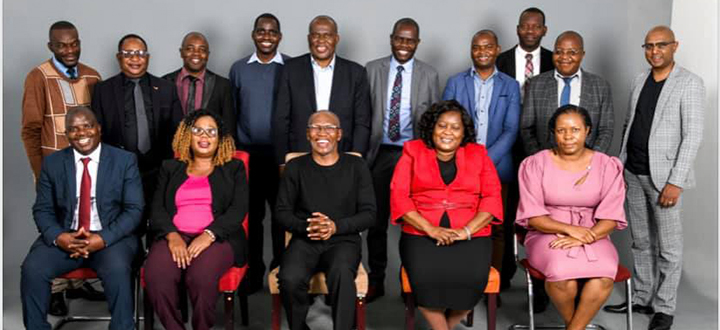
Click here to download the Call for Papers.
Role of Multilateral Organisations in Development, Peace and Security in Africa
Background/Context
As we enter the fourth quarter of the 21st century, the African continent is still confronted by the exigencies of development, peace and security. Compared to other continents, Africa is the least developed and is host to most poor people. Africa has witnessed multiple challenges due, in part, to the deteriorating state of governance, democratic backsliding, spread of terrorism, protracted and emerging conflicts as well as from the rise of non-traditional security threats. Since 2020, there have been nine successful coups détat on the continent, with Niger and Gabon being the latest countries to join the expanding list in 2023.
The continent’s peace and security landscape are characterised by continuing, emerging and persistent conflicts making it a vortex of instability. Some of the triggers of conflicts include poverty, inequality, underdevelopment and poor economic growth, among others. Yet, Africa has operationalised the Africa Continental Free Trade Area (AFCFTA) to level the playing field by fostering and propelling free trade within the continent. Such exigencies necessitate both transdisciplinary, transnational and multilateral approaches and interventions. Pursuant to this approach, it has been pointed out that a new mindset is urgently needed to implement humanitarian and development interventions and programmes in a post-2020 world. Such approach should be cognisant of the role of women in peace and security, Indigenous Knowledge Systems (IKS) and African Knowledge Systems (AKS).
The post-2020 epoch saw a significant increase in pandemics, natural disasters, climate change and artificial intelligence (AI) with uncertain implications for Africa’s development, peace and human security. Several studies conclude that peace, development and security should not be viewed as mutually exclusive. Rather, they are unfettered, intertwined and inseparable. To this end, strong emphasis should constantly be placed on improving and promoting integration and coordination between humanitarian and development assistance and between development and peace. Over the past few decades, it has become increasingly clear that because leaders fail to strike a delicate balance between development, peace and security, the unintended consequence being an upsurge of violent conflicts.
The African Union is not only a key part of the United Nations system, but it is also anchored in multilateralism and in the same values and principles enshrined in the UN Charter. Within the broader partnership, there needs to be a more systematic arrangement of support to AU PSOs, particularly now that peace and security landscape requires the role and responsibility not only of the UN but also of regional organisations.
The increasing conflicts occur despite the multitude of global and continental multilateral institutions that are charged with the responsibility of ensuring development, peace and security at a regional, continental and international level. As such, others have looked at the relationship between the United Nations Security Council (UNSC) and African Union Peace and Security Council (AU PSC) to determine their compatibility in addressing African conflict situations.
In recent years sub-regional multilateral organisations, the African Union and the United Nations have come under scrutiny for their failure to maintain peace and security at sub-regional, continental and international, respectively. The conflict in the Eastern Democratic Republic of Congo, North Sudan, South Sudan, Ethiopia, Mozambique, and the recent military take overs in the Sahel region give credence to the fragility and lack of wherewithal on the side of multilateral organisations. This is happening despite a multiplicity of peace and security frameworks including the African Union (AU) Charter on Democracy, Elections and Governance (ACDEG), the African Peace and Security Architecture (APSA), and the African Governance Architecture (AGA), among others. Resolution 2719, adopted in December 2023, holds the potential to be a watershed in how the UN and the broader international community support African-led peace operations. However, its implementation is faltering amid political inertia, technical hurdles, and US hostility toward global institutions.
Against this background, the purpose of the Second Thabo Mbeki African School Biennial Conference 2026 is to critically interrogate the varying roles of global and continental multilateral institutions considering persistent development, peace and security challenges on the African continent. Such an interrogation affords emerging and seasoned scholars, researchers and practitioners with the opportunity to reflect on the existing policies, strategies and practices that are aimed at ensuring peaceful and prosperous societies and continent.
The scientific interrogation can include, although is not limited to, the following thematic issues:
Theme 1: Continental collaborative efforts to ensure development, peace and security in Africa
Theme 2: Governance and leadership in Africa
Theme 3: Contested roles of multilateral organisations
Abstract Guidelines
Abstract should have (1) a title of the proposed paper, (2) author’s name and surname, and (3) affiliation on the cover page. The length of the abstract should be between 250 to 300 words, and it must highlight the aim and focus of the proposed paper.
Submission deadlines
Receive abstracts: 30 November 2025
Notification of acceptance or rejection: 15 December 2025
Submission of full paper: 28 February 2026
Conference dates: 28, 29, 30 April 2026
Abstracts should be forwarded to:
Prof Mbekezeli Mkhize: mkhizmc@unisa.ac.za copying Ms Boikhutso Mfusi:
mfusibf@unisa.ac.za and Ms Nomvula Mnisi: mnisinc@unisa.ac.za
Bibliography
Amadei, B. (2021). Systemic Modeling of the Peace–Development Nexus. Sustainability, 13(2522): 1-21.
Brown, S., Mena, R. and Brown, S. (2024). The Peace Dilemma in the Triple Nexus: Challenges and Opportunities for the Humanitarian–Development–Peace Approach. Development in Practice, 34(5): 568–584.
Browne, S., and Weiss, T.G. (2014). UN Fit or Unfit, For Post-2015 Purpose? Views of the Global Public, Briefing 20, Future United Nations Development System.
Chatterjee, S. (2023). A United Nations “Fit for Purpose” to Address the Current Geopolitical Environment and Challenges Facing the Community of Nations, Beijing: United Nations.
Eagleton, C. (1946). The United Nations: Aims and Structure, The Yale Law Journal, 55(5): 974-996.
McNamee, T., and Muyangwa, M. (2021). The State of Peacebuilding in Africa: Lessons Learned for Policymakers and Practitioners (p. 431). Springer Nature.
Moerane, G.K. (2023). The United Nations Charter and the African Union Constitutive Act: The Search for Compatibility in Addressing African Peace and Security, Global Change, Peace & Security, 35(2):217-228.
Bitania, T. (2023). The Role of African Multilateralism in the New Agenda for Peace - IPI Global Observatory
Van Emmerik, C., & Albrecht, P. (2025). The Crisis of Multilateralism and African Peace Operations | DIIS.
Publish date: 2025/11/10
 Unisa celebrates a project of hope, dignity and student success
Unisa celebrates a project of hope, dignity and student success
 Women vocalists take top honours at Unisa's globally renowned showcase
Women vocalists take top honours at Unisa's globally renowned showcase
 African wealth is dependent on investment in education and development
African wealth is dependent on investment in education and development
 Unisa celebrates matric result success at Correctional Services ceremony
Unisa celebrates matric result success at Correctional Services ceremony
 Unisa ICT Director recognised among acclaimed IT leaders
Unisa ICT Director recognised among acclaimed IT leaders